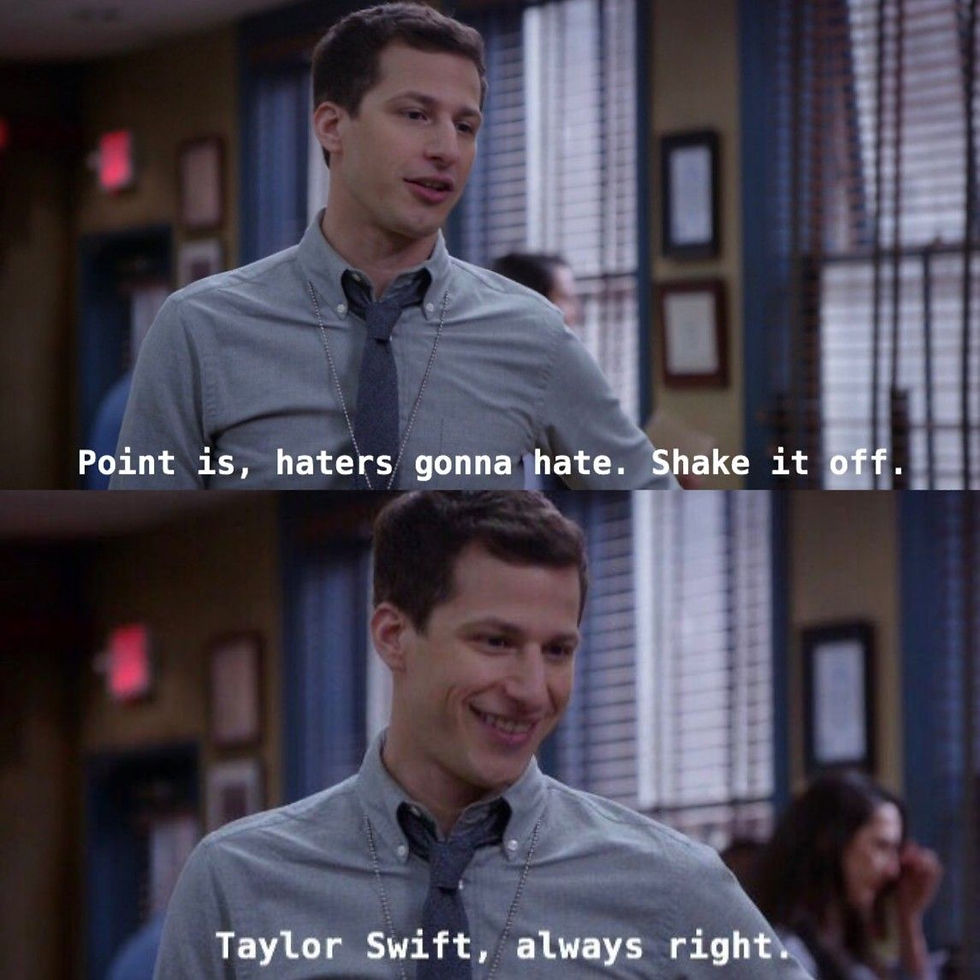Shake It Off: How to Get out of a Monologue Rut
- Mia Wurgaft
- Apr 22, 2021
- 5 min read
Hello dear actor chickens,
My name is Mia, and I am an actor who has recently been through the grad school audition circuit - and came out the other side of it not only in one piece, but also with a place in the Juilliard Drama School’s Group 54 as an MFA candidate!
I recently graduated from NYU/Tisch with a BFA in Acting as well, so I wasn’t a stranger to the drama school audition game. However, I knew I wanted to make sure my pieces were focused and polished, so I reached out to this lovely team of Juilliard/Yale grads for some coaching! I so loved working with Anthony and Brandon that I wanted to give back and offer some of the things I learned on my path back to the How to Get Into Drama School community.
I hope you can try the following exercises out, and find more joy in your pieces and in your innate gifts - show them what you got!
SO.
Ever heard of or experienced over-rehearsing?

I don’t know if I believe in it completely, but I certainly do know what getting caught in a rut with a monologue feels like - that feeling of stagnancy, that lack of spontaneity, and even thinking that scary thought all actors think at one point or another: I don’t know if I can discover anything more than I’ve already discovered!
It is as if we have come upon a large, cement wall and there is absolutely no way of getting to the other side...
Which we all know is not true, chickens - there is always more! Always something new, always a discovery to make. No matter how big or how small.
OR
Have you ever been in the situation where YOU feel great about a piece - you are consistently nailing this moment or that, and a coach/auditor says “eh, it’s good, but it feels a little robotic. Can you shake it up a bit, make it more human?”
What does THAT mean and how do I DO it??
They are asking you to let go a little, chickens!

You might be grabbing on too tight to the way you say a specific word, or the way you pause in between two specific lines - they want to see you fly but you are so tethered to how you originally rehearsed your monologue that you are staying stuck to the ground. They are not asking you to DUMP everything you have worked so hard on. They are saying - you’ve done the work. It is in you. You do not need to work so hard to show me that you have done your work. And you do not need to worry that you will all of a sudden forget everything you have worked so hard on. It is all there - let it arrive to you as organically as possible.
Here are some exercises to shake out the cobwebs and to let you explore every last crevice of your pieces.
Again: The goal is not to completely change how you have been doing your pieces - the goal is to grip less tightly to how you think this piece goes, so that in the moment of performance, you can let your already rehearsed moments and thoughts surprise you a little! Romeo didn’t know how he was going to first speak to Juliet, you know what I mean?
And who knows? Maybe you’ll find something that you will take with you into the audition room...
1. Whisper!

Speak your piece as if you’re at a group sleepover, and everyone else is asleep except for you and your best friend - and you are trying your BEST to get them to understand everything you are saying without waking anyone else up! New circumstances, new discoveries.
2. Sing out, Louise
One of the silliest ones, but one of the most effective. Try singing your monologue! Let there be crescendos and diminuendos, or moments of playing with tempo and pitch. You might get to know your relationship to your piece better, seeing where you think your character is singing high and soft versus low and loud - how quick/slow do the notes change, or how fluid/staccato the character’s thoughts are.
3. Play Telephone

One of my favorites: get out your phone, go on a walk, and start saying your piece as though you are on the phone with someone. Imagine their responses on the other line, and respond accordingly. This is just a way to contextualize an exercise many teachers offer in which you are imagining you are speaking your monologue to a partner across the room. I find it helps to recreate a situation in which I am speaking to someone who in reality is not there - I don’t have to “pretend” that my mother is sitting next to me when in reality she isn’t. I’ll just call her up instead!
4. Sweat it out

Literally, shaking is the answer here. Do your monologue while doing some jumping jacks, a jog, or even dancing to the latest Dua Lipa album. Get that blood pumping and those instincts sharp, chickens.
5. Toss it up

Specifically with Shakespeare, to help yourself focus more on the ends and beginnings of lines, try tossing a tennis ball up in the air on the last word of a line and then catching it on the first word of the next line. This might help take the focus off of pushing a certain emotionality, and place it more onto the structure of the text. This will let your thoughts and emotions be free to fly in whichever direction they so choose, rather than squishing them into the mold of what you thought the emotions should “be” or “look like.”
6. To be or not to be? That is the question! That is the question? Whether ‘tis nobler in the mind...

Can take some time, but VERY effective. This is how it goes: Make your first line a question, then answer it with the next line. Then, repeat that next line as a question, and answer it with the following line. Asking questions is a great tool for opening up your mind and exploring new ways of doing your monologues.
7. OPPOSITE DAY

Another fav - one Anthony W. had me do with my monologues that got me into Juilliard! Do the piece COMPLETELY DIFFERENTLY. A dramatic monologue? Crack us up with it. A comedic piece? Get me to give you a big hug and a cup of tea. This opposite day technique forces you to use your creativity in new and bold ways - there is so much comedy in tragedy and vice versa. It is what makes those pieces interesting and dynamic. Find those notes of light in the dark, the dark in the light.
8. Take a break

And sometimes...you do need a break. Take a step away, return in a day, in a week, heck, TWO weeks. That is TOTALLY normal and ok and helpful. Return with a fresh mind, and maybe a new perspective based on the experiences you had in your own life between the last time you did the piece and now.
Hope these help, chickens! Thanks for reading. Until next time,
Mia
IG: @miawurgaft




Comments